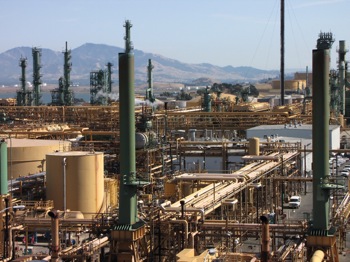
This post is updated with a response from Valero, below.
California's top air regulator has found a victory of sorts in this week's decision by the nation's largest oil refiner to keep its California refineries.
A spokesman for Texas-based Valero Energy Corp. told the Wall Street Journal that it has reconsidered its plan to sell its two California refineries. The larger of the two is in Benicia, on the northeast fringe of the Bay Area.
At a San Francisco panel organized by the greenbiz group E2 (for Environmental Entrepreneurs), the plainspoken chair of the state Air Resources Board seized on Valero's change of heart as vindication of California's aggressive moves to curb greenhouse gas emissions. The initiative includes the cap-and-trade program launched last year and the nascent Low Carbon Fuel Standard, both of which impose heavy costs on big refiners.
The comments came as Nichols was giving a general overview of how the state's climate strategy -- known as AB 32 -- is playing out.
"I'm not particularly a Valero fan," Nichols told the audience, recalling that the Texas company was the major funder of Prop 23, the failed attempt to suspend AB 32 implementation by referendum. "But the fact is somebody's gonna be operating those refineries. And the fact that this Texas-based oil company that thought you couldn't do business in the state of California is now deciding that they can stay here, and that they can make money and comply with our rules, I think is a hopeful sign."